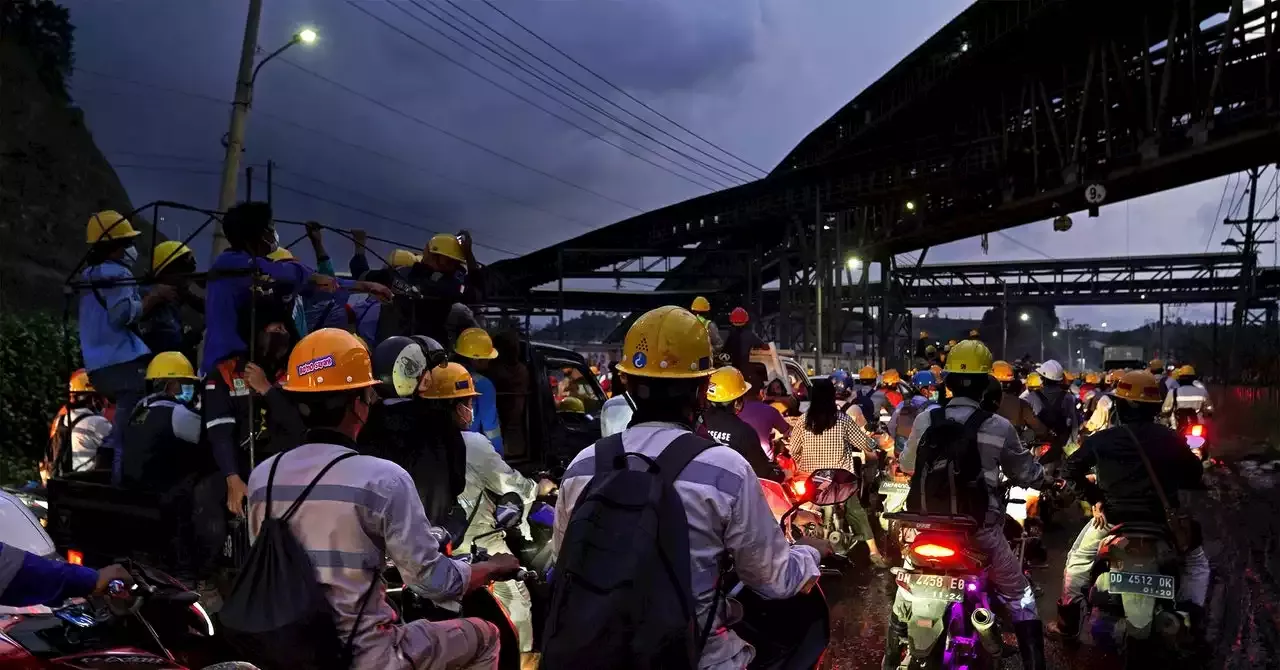village of Labota begins to shudder with the roar of motorbikes. Thousands of riders in canary yellow helmets and dust-stained workwear pack its ramshackle, pothole-ridden main road, in places six or seven lanes wide, as it runs along the coast of Indonesia’s Banda Sea. The mass of traffic crawls toward the Indonesia Morowali Industrial Park, better known as IMIP, the world’s epicenter for nickel production.
Sarida, who asked to not share her surname for privacy reasons, arrived in 2019 from Kalimantan, a region on the island of Borneo 800 kilometers to the west, after her husband got a job processing wastewater at a nickel company. “We will leave as soon as we can,” she adds, mounting her red Honda moped. “Before we have to be carried out.”
Rocketing demand for electric vehicles, combined with supply disruptions caused by Russia’s invasion of Ukraine, have made Indonesia—and IMIP—a critical link in the supply chains of EV manufacturers. That's especially true for Tesla, which has signed multibillion-dollar deals with companies at the site and isMeeting this demand has come at a huge social and environmental cost. Workers claim that deaths and injuries are common at IMIP.
Yes, we know that humans are messy dirty creatures that try to convince themselves otherwise.
